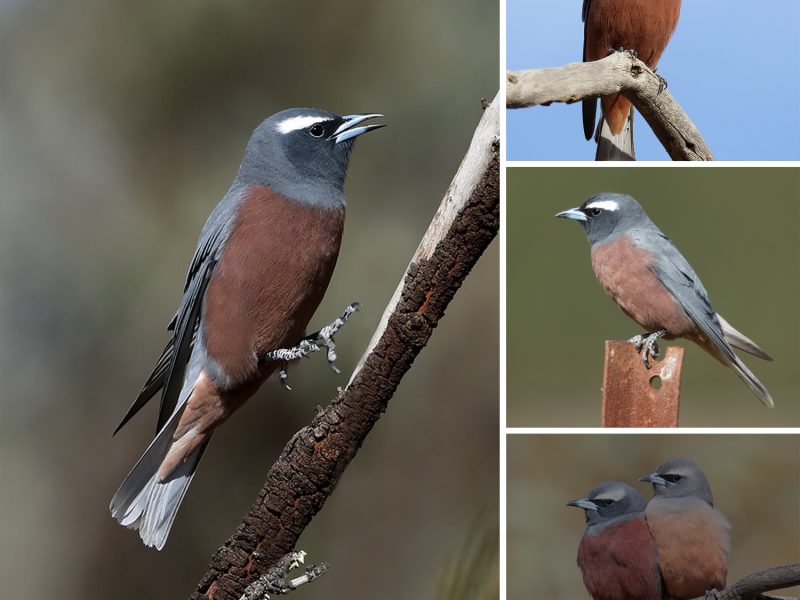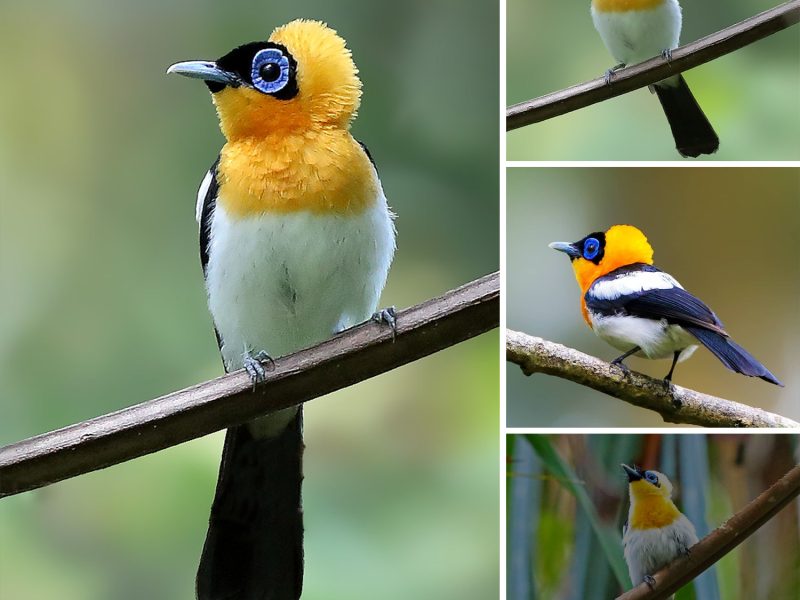The red-capped robin is a tiny yet spectacular bird. This small passerine bird is so fluffy and chubby but wears a striking coat of vivid scarlet, black and white. That’s easy to understand why it’s called the “jewel of the bush”.
1 / 6
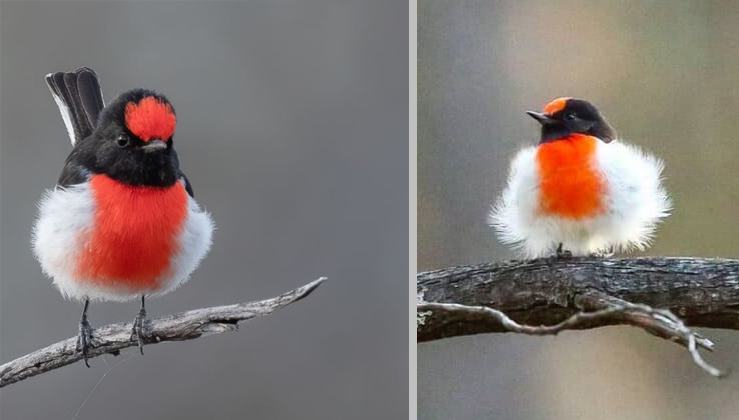
The red-capped robin (Petroica goodenovii), is a small passerine bird native to the Australian continent. Often called the jewel of the bush because of its scarlet breast, males and females of this species are similar in size, but that is where almost any resemblance ends. The male has a distinctive scarlet cap and breast. His upperparts are jet black with white shoulder bars, and his tail is black with white tips. His belly and shoulder are almost pure white, this makes his scarlet chest pop even more.
2 / 6
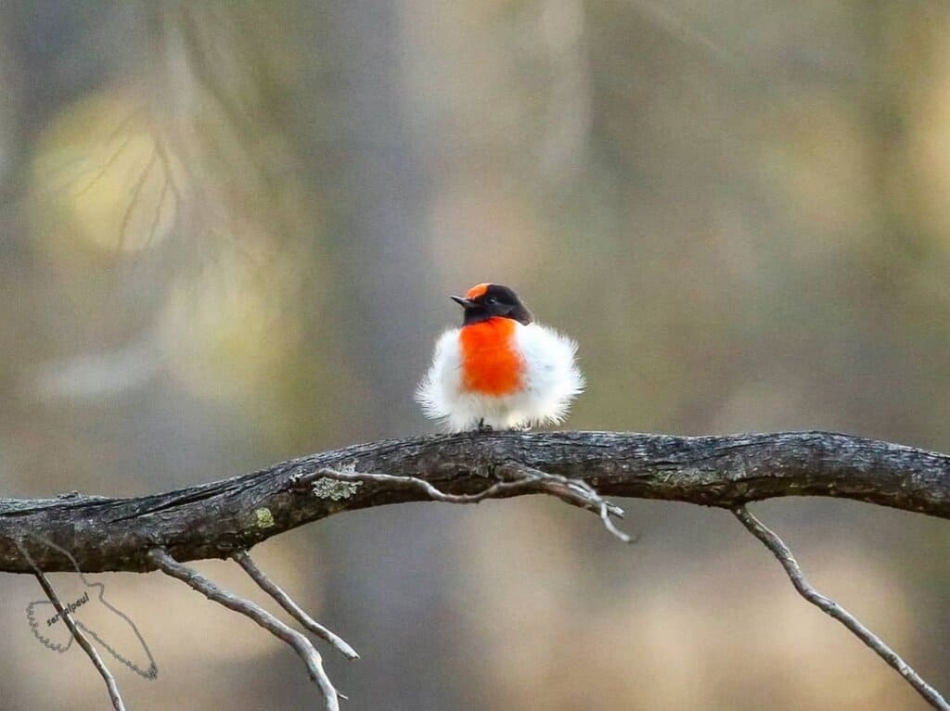
The female is an undistinguished grey-brown color with a reddish tint to her crown. Some females do have a slight reddish tint to their breast. Both males and females have small black bills, dark brown eyes, and legs.
3 / 6
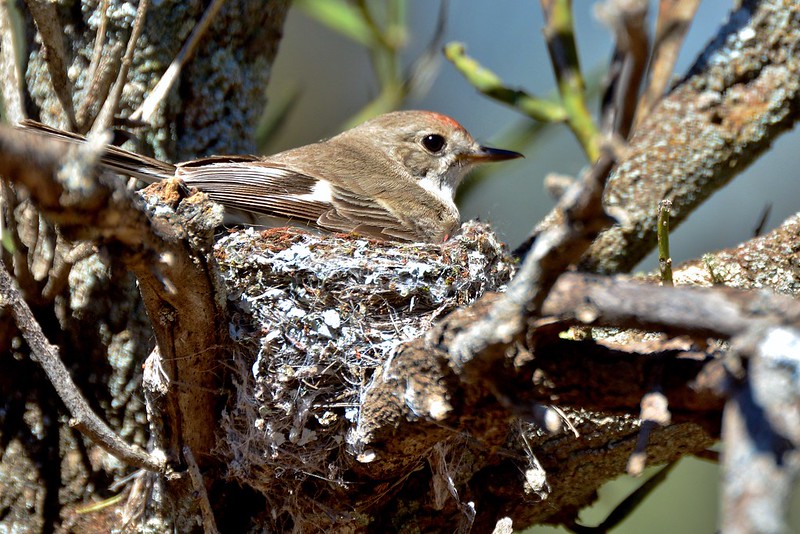
Native to Australia, these birds are found in dryer areas of the continent, where they inhabit scrub and bush areas, as well as open woodland. The Red-capped Robin’s diet consists mainly of insects and other small arthropods. One study found that 96% of their diet was made up of beetles, with ants making up the remainder.
4 / 6

The breeding season is from August to January with up to three broods can be successfully raised, though this is very rare. The male proposes suitable nest sites to his partner by rubbing his body over possible places, trilling continuously. He may need to indicate up to several sites before she ultimately decides where to nest.
5 / 6
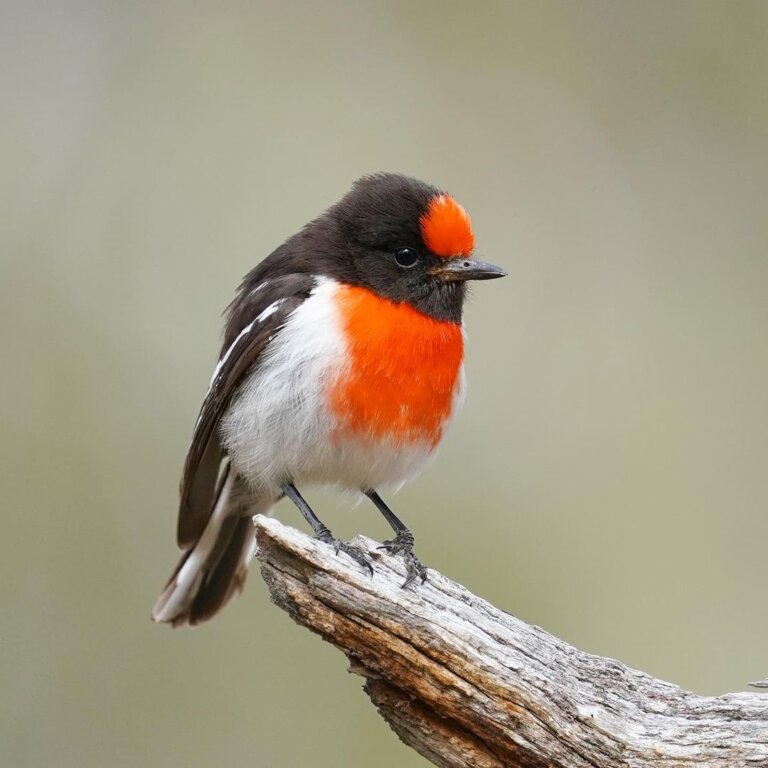
She then builds the nest on her own, made of soft dry grass and bark, with spider webs, feathers, and fur used to bind it and fill it. She may also decorate it with a lichen to help camouflage it. Two to three white eggs splotched with dark grey-brown are laid on consecutive days which she then incubates alone. The male, however, will help to feed the young once they hatch.
6 / 6

Due to human destruction of their habitat, the Red-capped robin has disappeared from some parts of the Sydney Basin, Rockhampton, and Western Australia. Feral cats and other birds are also known to prey on Red-capped robins, predation being the main cause for nest failure. You can watch the video of this striking tiny bird below.
